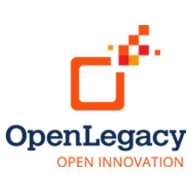

IBM API Connect and OpenLegacy are competing products in the API management category. IBM API Connect appears to have the upper hand with its extensive features and integration capabilities tailored for enterprise environments, while OpenLegacy's modern technology and quick deployment options make it an appealing choice for businesses seeking agility and cost savings.
Features: IBM API Connect offers extensive API lifecycle management, robust security, and in-depth analytics, making it suitable for large enterprises needing comprehensive control and insights. OpenLegacy excels in rapid legacy system integration and microservice generation, which is ideal for organizations focused on modernization and operational streamlining.
Room for Improvement: IBM API Connect could improve its deployment process, which tends to be complex due to its wide range of capabilities, potentially extending initial setup time. Documentation could be more user-friendly to facilitate quicker installations. It would also benefit from enhancing its microservice support further. OpenLegacy can improve upon scalability for very large enterprise demands, expand its analytics capabilities to match those of its larger competitors, and increase its cloud integration features for hybrid environments.
Ease of Deployment and Customer Service: OpenLegacy provides a straightforward deployment model, minimizing time-to-market with streamlined processes suitable for legacy systems, and it focuses on responsive customer service. IBM API Connect offers comprehensive support and documentation but tends to require more setup time due to its extensive capabilities, which can be intricate for users unfamiliar with its system.
Pricing and ROI: IBM API Connect has a perceived higher setup cost; however, it promises a strong ROI for enterprises that can fully leverage its extensive range of features over time. OpenLegacy presents a cost-effective solution with fast ROI, especially attractive to businesses aiming to reduce costs while modernizing efficiently without significant initial investments.

IBM API Connect facilitates API management and integration in the financial sector. Companies use it to expose, secure, and manage APIs for banking, insurance, and fintech, deploying it on-premises, in the cloud, or as a hybrid solution.
IBM API Connect focuses on creating and monetizing APIs while enabling seamless transactions and integration with third-party services. It is vital for compliance with regulations and enhances external communication among institutions. With deployment options suitable for different environments, it supports centralized gateway management, robust security features, and comprehensive API lifecycle management. Users benefit from powerful analytics, user-friendly interfaces, and high performance with capabilities in message transformation and efficient monitoring.
What are the most important features?IBM API Connect is extensively implemented in the financial sector, enabling banking, insurance, and fintech services to manage APIs efficiently. Companies use it to ensure secure transactions, integration with third-party services, and compliance with regulatory standards. Its deployment flexibility accommodates different infrastructure needs, making it suitable for a wide range of financial applications.
OpenLegacy helps organizations quickly launch innovative digital services by extending their core back-end systems to the web, mobile and cloud in days or weeks versus months. Our microservice-enabled API integration and management software quickly reduces project backlog by automating and accelerating microservices and API creation, deployment, testing and management from core applications, mainframes and databases. Together, business and IT teams can quickly, easily and securely meet consumer, partner or employee demands for digital services without modernizing or replacing core systems, and without special programming skills or invasive changes to existing systems and architectures. OpenLegacy is designed for ongoing management of microservices APIs and is based on open standards, so our software plays nice with your current technology stack and supports agile, DevOps and continuous development. Learn why leading companies choose OpenLegacy at www.openlegacy.com.
We monitor all API Management reviews to prevent fraudulent reviews and keep review quality high. We do not post reviews by company employees or direct competitors. We validate each review for authenticity via cross-reference with LinkedIn, and personal follow-up with the reviewer when necessary.